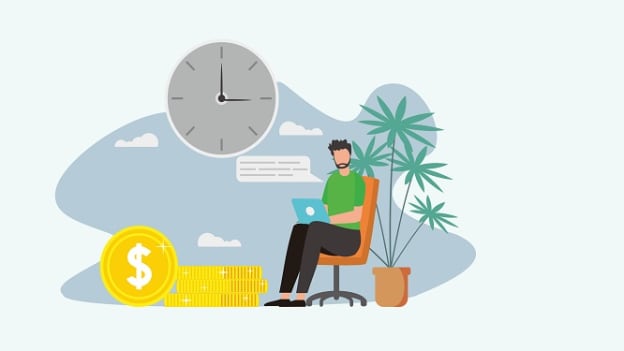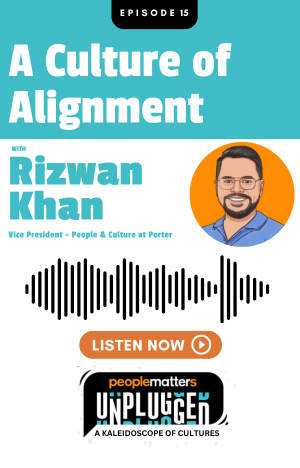Brightside’s funding and wider benefits trend

COVID-19 has caused untold disruption and left many uncertain about their futures. By some estimations, the global economy will not return to normal until at least 2022. Jobs have been lost and savings have been wiped out; plans have shifted and the way we work has fundamentally changed. Under COVID, the unique potential of technology has also accelerated. Pressure has led to invention and innovation. Advances that may not have happened for years - or even decades - have now been made out of sheer necessity. The world is changing at a rapid pace.
One area in which fast-moving issues of health, money, and tech coalesce is in the growing momentum of financial care platforms. This week, one such platform, Brightside, announced it has raised $35.1 million in Series A funding. The round was led by Andreessen Horowitz with participation from existing investors Comcast Ventures and Trinity Ventures, the a16z Cultural Leadership Fund, and others.
One of a number of financial care platforms cropping up on the scene, Brightside’s trailblazing model works through providing human-centric advice on financial health via their dedicated Financial Assistants. These platforms not only boost financial literacy and wellness but bind financial wellbeing to employment in a way previously reserved only for healthcare and employment.
Through the many services provided - improving credit scores, debt refinancing, loan assistance, automated debt repayments, sourcing government and community benefits, and the removal of admin fees - Brightside saves an average $1200 per employee per year. In a world where financial stress costs companies approximately $4000 per year per employee, this represents a tremendous competitive advantage. As we move into the Next Normal, this is an area leader cannot afford to ignore.
Alex Rampell, General Partner at a16z, a leading funder of Brightside’s latest offer, had this to say: “employers are uniquely motivated and positioned to improve employee financial health, during business-as-usual and especially during times of economic crisis, but need a single platform that simply curates and integrates the myriad of point solutions in a way that really works for employees.”
Clearly, COVID-19 has only amplified the necessity of excellent financial literacy. Brightside, and other services like them, are helping companies bolster their benefits, extending a much-needed financial lifeline to employees during this unprecedented time.
Physical, mental and financial health - three branches of the same tree
The health implications of COVID-19 are well-documented, and it stands to reason the impacts of the outbreak will be felt for some time to come. In order to understand how best to help employees, leaders must depart from the notion that physical, mental and financial well-being are separate entities and rather embrace a holistic approach to workplace wellness, one that encompasses all three aspects of care.
The figures are stark: in a 2018 US Financial Health Pulse Survey, it was revealed that 72% of Americans are financially unhealthy. Even before the crisis, a Willis Towers Watson survey found almost 40% of US workers were living paycheck to paycheck and a similar number couldn’t come up with $3,000 if an unexpected need arose within the next month. The pandemic has also revealed how few people actually have emergency savings. For many, financial wellbeing extends beyond retirement plans, mortgages and has become about survival - especially now.
How are organizations, through fintech, rising to meet this challenge?
The long shadow of financial anxiety
Employers have always known that money woes cast a long shadow. Financial worries follow team members to the offices, with deep-rooted impacts on productivity, retention, and overall company culture.
Last year, in a survey by Salary Finance, it was revealed that financially-anxious employees were 2.2x more likely to look for another job, 5.8x more likely to miss deadlines
Employers are in a unique position to alleviate these worries and therefore bring relief, value and motivation to their employees lives. According to a 2019 John Hancock Financial Stress Survey, only 18% of respondents said they would consider themselves confident to manage their own financial decisions and almost half of respondents said worrying about finances at work makes them less productive.
Beyond outputs, though, money and finances are a uniquely human problem, one that every person, on some level, will have to reckon with at some point. Finances and mental health are undeniably intertwined: according to the Salary Finance study, workers who struggle with cashflow are 3.4x more likely to experience panic attacks and 4x more likely to experience depression. If employees are concerned about putting food on the table, that leaves little room for all those thought skills that will be increasingly desirable, particularly in the Next Normal; things like creativity, ingenuity, agility and empathy will fall by the wayside if basic needs cannot be met.
What’s more - these platforms work. The same John Hancock survey found 77% of employees believe “employer-sponsored financial wellness [are] programs important,” and that employees at companies with financial wellness programs in place are more likely to have increased their retirement plan contributions, written a household budget and written a plan for retirement. All of these steps towards financial security will have tangible benefits - both for the company and the employee.
Even better - these programs don’t have to cost companies much. In fact, platforms like Brightside may even save money - both in the long term and right now.
Cutting costs and making paychecks go further
With a global recession on the horizon, cost-cutting will likely begin to form the bedrock of many company policies going forwards. Redundancies, lay-offs, and cuts to hours and salary have been widespread and will continue to be so for some time. From an employee's perspective, this landscape can appear desperate, unfair - even hopeless. For ambitious professionals and talented individuals looking to move up the career ladder, how can leaders offer competitive benefits, while simultaneously driving down costs? Financial wellness advice and solutions may be the key. As Tom Spann, CEO and co-founder of Brightside outlines, “we have proven that a holistic approach, combined with financial products built for this population, can have a significant effect on people's lives and on the employer's bottom line.”
After announcing pay reductions, for example, leaders could mitigate the news with the promise of loan support, debt relief, financial advice, or assistance with building emergency savings. Looking to the future, leaders can steer workers away from taking out expensive, debilitating personal loans and keep such exchanges “in-house” to better control repayments. Employers reassure their workers that while salary cuts may be temporary, the financial support received - and decisions made as a result - will have a ripple effect and generate value long into the future.
In many ways, the COVID crisis is a reset. Fusing financial care to employment could be at the vanguard of this pivot point in history.
The New Benefit
Extending a financial lifeline is a growing trend among employers. Brightside has been around since 2018 and is part of a wider circuit of actionable platforms that motivate and enable workers to achieve financial stability and, hopefully, mental and physical stability as well. Other companies out there include platforms such as Financial Finesse that aim to build “holistic workplaces where employees value their purpose as much as their paycheck.” Just this week, Cetera Financial Group announced the incorporation of eight financial wellness modules into their Cetera Resiliency Pack, which aims to drive better decision-making on everything from home-owning to 401k plans to insurance plans.
Funding rounds such as Brightside’s prove there is a vast market for financial wellness programs. Employers can harness this moment into a mutually beneficial exchange, balancing their budgets, maximizing value and providing security for their people at a time when uncertainty is rife.














